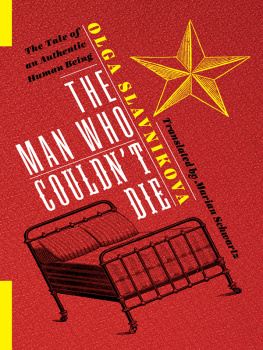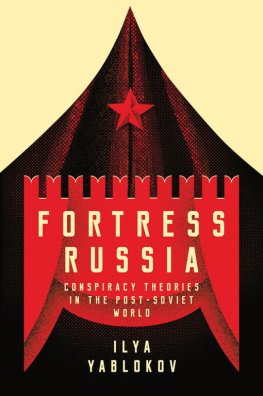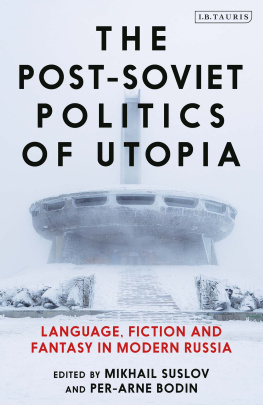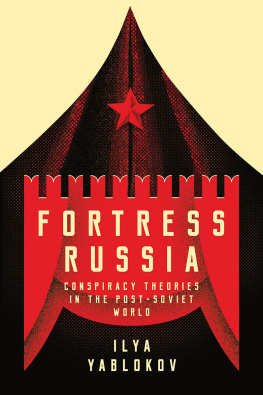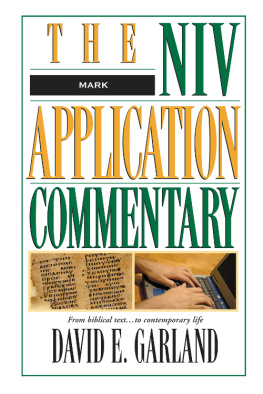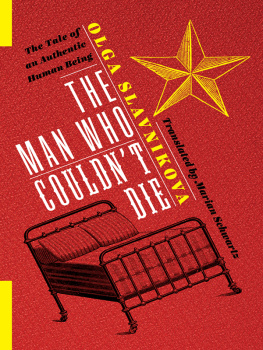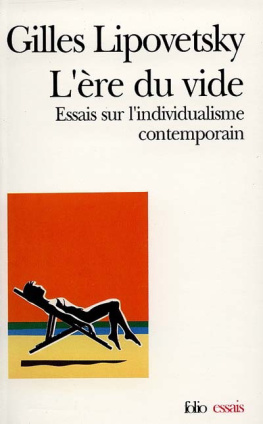Table of Contents
THE MAN WHO COULDNT DIE
RUSSIAN LIBRARY
The Russian Library at Columbia University Press publishes an expansive selection of Russian literature in English translation, concentrating on works previously unavailable in English and those ripe for new translations. Works of premodern, modern, and contemporary literature are featured, including recent writing. The series seeks to demonstrate the breadth, surprising variety, and global importance of the Russian literary tradition and includes not only novels but also short stories, plays, poetry, memoirs, creative nonfiction, and works of mixed or fluid genre.
Editorial Board:
Vsevolod Bagno
Dmitry Bak
Rosamund Bartlett
Caryl Emerson
Peter B. Kaufman
Mark Lipovetsky
Oliver Ready
Stephanie Sandler
Between Dog and Wolf by Sasha Sokolov, translated by Alexander Boguslawski
Strolls with Pushkin by Andrei Sinyavsky, translated by Catharine Theimer Nepomnyashchy and Slava I. Yastremski
Fourteen Little Red Huts and Other Plays by Andrei Platonov, translated by Robert Chandler, Jesse Irwin, and Susan Larsen
Rapture: A Novel by Iliazd, translated by Thomas J. Kitson
City Folk and Country Folk by Sofia Khvoshchinskaya, translated by Nora Seligman Favorov
Writings from the Golden Age of Russian Poetry by Konstantin Batyushkov, presented and translated by Peter France
Found Life: Poems, Stories, Comics, a Play, and an Interview by Linor Goralik, edited by Ainsley Morse, Maria Vassileva, and Maya Vinokur
Sisters of the Cross by Alexei Remizov, translated by Roger John Keys and Brian Murphy
Sentimental Tales by Mikhail Zoshchenko, translated by Boris Dralyuk
Redemption by Friedrich Gorenstein, translated by Andrew Bromfield
Columbia University Press
Publishers Since 1893
New York Chichester, West Sussex
cup.columbia.edu
by Olga Slavnikova
Agreement by Wiedling Literary Agency
English translation copyright 2019 Marian Schwartz
All rights reserved
E-ISBN 978-0-231-54641-6
Published with the support of Read Russia, Inc., and the Institute of Literary Translation, Russia
Library of Congress Cataloging-in-Publication Data
Names: Slavnikova, Olga, author. | Schwartz, Marian, 1951- translator.
Title: The man who couldnt die: the tale of an authentic human being / Olga Slavnikova; translated by Marian Schwartz.
Other titles: Bessmertnyi. English
Description: New York: Columbia University Press, 2018. | Series: Russian library
Identifiers: LCCN 2018022924 (print) | LCCN 2018027118 (ebook) | ISBN 9780231546416 (electronic) | ISBN 9780231185943 (cloth: alk. paper) | ISBN 9780231185950 (pbk.)
Subjects: LCSH: VeteransRussia (Federation)Fiction. | PerestroikaFiction. | Soviet UnionPolitics and government1985-1991Fiction.
Classification: LCC PG3488.L35 (ebook) | LCC PG3488.L35 B4713 2018 (print) | DDC 891.73/5dc23
LC record available at https://lccn.loc.gov/2018022924
A Columbia University Press E-book.
CUP would be pleased to hear about your reading experience with this e-book at .
Cover design: Roberto de Vicq de Cumptich
Book design: Lisa Hamm
CONTENTS
by Mark Lipovetsky
MARK LIPOVETSKY
I met Olga Slavnikova in 1987 or 1988. Back then we both lived in Sverdlovsk (now Ekaterinburg); she worked as an editor at Ural, the local thick and respectable literary magazine, and I was publishing my first articles in it. She had just finished a journalism degree at Ural State University (my alma mater too) and was launching her literary career, both as a prose writer (her first novella, A Freshman Girl, was published in 1988) and as a literary critic. We had many common interestsprimarily the culture wars that were roaring around usand quickly recognized each other as like-minded. The circle of young literati to which we belonged was mesmerized by the newly discovered continent of Russian underground and migr modernist and postmodernist literaturefrom Vladimir Nabokov to Sasha Sokolov and Venedikt Erofeevwhich started to appear in print after decades of censorship and about which we talked all the time.
This was the peak of perestroika, and Olga was an active participant in the literary innovations of the time. One such innovation was a special issue of Ural (1988, no. 1), which published a few pieces of nonconformist prose and avant-gardist poetry along with a radical (for the time) political-economic article. Although it was the latter that brought national recognition to this issue (according to rumors, it was resold on the black market at a vastly inflated price), Ural continued to publish less conventional literature in a magazine within a magazine entitled Text, with a belatedly Structuralist chic. Although not entirely independent from Urals management, Text published exciting prose and poetry by young and not-so-young writers who would otherwise never have appeared on the pages of any Soviet journal. The novelty of this literature was not political, it was aestheticmost of the works published in Text not only deviated from Socialist Realism (which nobody took seriously anyway) but also disregarded social realism and the classical realist canonwhich in the eyes of readers and the literary establishment was a much greater sin than being anticommunist.
At that time, however, nobody yet saw Slavnikova as a leader of the new literature from the Urals (or from Ural). This changed drastically after her first major novel, A Dragonfly Enlarged to the Size of a Dog (1997). Published in Ural, it was included on the short list for the Russian Booker Prize. Furthermore, A Dragonfly became the years greatest literary sensationcritics and readers alike noticed the novel and praised it as one of the brightest debuts of our generation. This was the work where Slavnikova found her original style. Valentin Lukianin, a critic and editor-in-chief of Ural in the 1980s and 1990s, aptly writes:
Everybody knows that a photo of the head belonging to a fly, mosquito, or dragonfly, when taken through a microscope, reveals a horrible and even fantastic monster. But this monster really exists, although we dont recognize it in a small insect. In the same manner, Slavnikova placed normal and ordinary relations between intimates under a microscopic lens, and through this device, she discovered everyday Russian reality from such an angle that nobody has ever experienced.
Slavnikovas newfound style paradoxically fused the lessons of traditional realism and radical modernism. On the one hand, Slavnikova is attentive to the everyday life of poor and socially marginalized people, especially women. On the other, she enlarges the details of their ordinary existence with such a powerful microscope that they turn into surreal symbols, and through this metamorphosis her prose exposes lifes frequently morbid undercurrent. This approach, however, excludes a necessary component of the Russian literary tradition, the writers compassion for her characters. Slavnikova is truly mesmerized by her monstrous everyday people, but with the fascination of a scientist, she keeps her narrative distance, never allowing readers to identify with any of her characters. Her coldness stands for an unblinking analytical position, for an acidic skepticism hostile to any sweet illusions. Such a distancing is critical for all her works, but especially for

